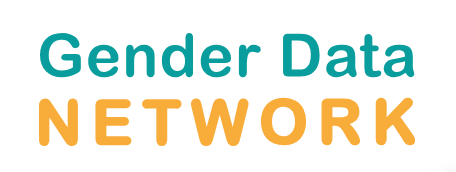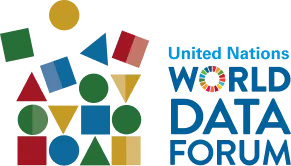
Strengthening National Capacity and Promoting Knowledge Sharing with the Gender Data Network (GDN)
Gender Data Network (GDN), Data2X, Open Data Watch, and PARIS21
Civil Society
United Nations Economic Commission for Africa (ECA), the United Nations Economic and Social Commission for Asia and the Pacific (ESCAP)
Global
The Gender Data Network (GDN) receives support from PARIS21, Open Data Watch (ODW), Data2x, the United Nations Economic Commission for Africa (ECA), and the United Nations Economic and Social Commission for Asia and the Pacific (ESCAP). These organizations commit to growing this vital network to include more regions and expanding its impact over the next three years. By scaling the network to other countries and regions, facilitating peer learning and cross-country exchange, fostering partnerships, and leading advocacy campaigns, we commit to advancing the GDN's mission of strengthening the impact of gender data.
As we move closer to 2030, it is important to reflect on our progress to achieve the Sustainable Development Goals, which is not possible without accurate, timely, and high-quality gender data. Capacity constraints, lack of political will, and inefficient funding, however, hamper a country’s ability to monitor and enact inclusive development policies.
Cross-country knowledge exchange, focusing on national staff in charge of data, is an important mechanism to address these challenges. Such exchanges can create a learning network to apply and scale good practices to produce, analyze, and use gender data. This is most evident through the experience of the Gender Data Network (GDN). The GDN is a collaborative of data experts that aims to enhance the production, quality, and use of gender data by key stakeholders across Africa and Asia-Pacific. The GDN fosters a network to increase gender data expertise, facilitate cross-country learning, support capacity development and provide a platform for members to jointly develop solutions to key challenges.
Since 2019, the GDN has grown to include representatives from over 50 countries across Africa and the Asia-Pacific region, fostering a strong community of professionals dedicated to closing gaps in gender data and improving its use. Since its start, it has supported national gender statisticians and improved peer-to-peer exchange and knowledge sharing.
As the organizations supporting the GDN, we are dedicated to strengthening and expanding the network even further over the next three years, ensuring it continues operating as an essential tool for gender data professionals, policymakers, and civil society. Our commitment takes many forms:
● Amplifying the work of GDN members: We will launch comprehensive materials (infographics, videos, blog posts) highlighting the significant contributions of GDN members and the impact of their work on gender data within their countries. This action will showcase the work and achievements of GDN members, allowing the explanation of key concepts related to gender data and highlighting how their efforts influence policy. It will also allow members to share good practices and will demonstrate the importance of investing in gender data systems. Through this, we aim to underscore the collective impact of the work that is already being conducted to advance gender data and increase collaboration with other organizations that support national statistical offices.
● Scaling and expanding the network: After the recent expansion of the network to the Asia-Pacific region, we will provide logistical support for the potential expansion of the GDN into new countries and regions. This includes reaching out to regional economic commissions, building partnerships with interested national statistical offices, and working with the GDN partnership to receive necessary approvals for new membership. This expansion aims to strengthen existing partnerships and the integration of new members to enhance capacity and knowledge about gender data.
● Facilitating capacity exchange across the network We commit to allocating resources (technical, informational, people) to support GDN activities, including facilitating workshops, peer training, conducting skill-building workshops, and showcasing new resources and tools. Focusing on further building the network's expertise will ensure its members are better equipped to address gender data gaps, facilitate gender data use, and tackle emerging issues.
● Networking and partnership opportunities: We will continue our work to proactively connect GDN members with other local, regional, and global networks that focus on gender or gender data and statistics. Such partnerships will be crucial in creating opportunities for collaboration, cross-country knowledge exchange, and advancing innovative gender data methodologies.
● Advocacy/Outreach campaigns: We will lead global advocacy campaigns that promote the ethos of the GDN, elevating the importance of gender data, peer learning, and cross-country exchange. These efforts will include social media campaigns, webinars, and publications that highlight the network’s impact and underscore the critical role of gender data in current times.
These holistic commitments will guarantee that the Gender Data Network remains a dynamic and influential resource for professionals and gender data advocates across the globe.
We will conduct bi-annual membership surveys to evaluate the effectiveness of GDN activities and inform strategic updates. Annual reports will monitor geographic expansion of the network, detailing successes and challenges in integrating new members across regions. To measure engagement, we will track participation in webinars and events, adjusting strategies as needed. We will also monitor website analytics to identify opportunities, enhance accessibility features, and guarantee continued improvement. The impact of partnerships with networks, nonprofits, and educational institutions will be documented to assess collaborative influence. All these outcomes will be shared within the GDN and with a broader audience through ODW, PARIS21, ECA, ESCAP, and Data2X channels.





